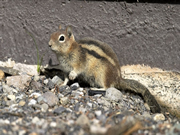General Beaver Questions
Q. Why did the Creator of Heaven and Earth make beavers, anyway?
Q. Why did the beavers pick my ditch, lake, river or pond?
Q. Why do I need to get rid of beavers?
Q. When are beavers a problem?
Q. When is the best time to get rid of beavers?
Q. How do I know if I have beavers in my ditch, lake, river or pond?
Q. Where can I get help with my beaver problem?
Health & Safety
Q. What are the health risks of having beavers on my property?
Q. Who is responsible for this beaver problem?
Animal Control Products and Methods
Q. What are the most common beaver complaints you receive?
Q. Which poisons do you recommend to kill beavers?
Q. Which beaver repellents are the best?
Q. Which methods do you use to exterminate beavers?
Q. Who should I call for help?
Q. Why should I hire a professional to get rid of beavers?
Property Damage
Q. What damage can beavers cause?
Q. What is this going to do to my property value?
Q. How can I get the beavers out?
Q. How can a wildlife removal technician help me get rid of the beavers?
Costs
Q. What does it cost for an initial on-site beaver inspection?
Q. What does it cost for an initial over-the-phone beaver control consultation?
Q. Who pays for my beaver problem?
Q. What FREE beaver control services does your company offer to the public?
Q. How much will it cost to get rid of the beavers?
General Beaver Questions
Q. Why did the Creator of Heaven and Earth make beavers, anyway?
A. Beavers are a “keystone species”—one that is fundamental to an ecosystem. Beavers are one of the few animals that actually modify the environment (humans are another) to suit their own purposes. In the process, they create a new environment--a wetland--that suits a remarkable number of other species. They create standing water and marshland and prevent erosion.
Q. Why did the beavers pick my ditch, lake, river or pond?
A. Beavers are attracted to slow-moving streams and rivers that have muddy bottoms and plenty of trees or shrubs nearby. They rely on water to build their homes and the trees and other vegetation for food. Bark, leaves, water lilies and shoots all make great beaver food.
Beavers have moved into your area for the same reason all wildlife moves in: safety, shelter, food. At one time, beavers were nearly extinct, but they have made a huge comeback. On one hand this is great news, but on the other hand conflict between humans and beavers is on the rise as they move back into long-abandoned waterways and seek territory in areas now occupied by humans.
Q. Why do I need to get rid of beavers?
A. Beavers will do what beavers do—you cannot frighten them away or stop them from cutting trees and building dams. A beaver family will cut down as many as 300 trees a year and can gnaw through a good-sized one in 15 minutes.
They can’t tell a naturally occurring birch or aspen tree from an expensive fruit or nut tree. They all taste good to the beaver. Shrubs, too. Those make a great snack and whatever isn’t eaten plugs holes in dams very nicely.
In the process of building their dam, they do not consider whether or not you want to have your yard, road or home’s foundation flooded. They want their home flooded, and that is what they are going to do. In the process of creating the dam they not only cut down trees, but also dig banks for mud, turf and other items to pack the dam and make it strong.
Q. When are beavers a problem?
A. Beaver are a problem when they cut down or severely damage expensive trees, shrubs and other plant life that people intended as landscaping. Dam building activity causes flooding that can damage landscaping or homes or cover roadways.
Q. When is the best time to get rid of beavers?
A. The sooner you get rid of beavers, the better. Once established, they form family groups wherein an adult pair lives with their last-year and this-year kits (baby beavers). Beaver are very territorial and hard to drive away from an area once they have decided it is theirs.
Q. Where do beavers live?
A. Beaver live anywhere in North America where a good water source is available year round—natural springs, wetlands, swamps, ditches, drains, lakes and ponds are all potential beaver habitat. While severely threatened at one time, beaver are making a comeback and are now found in many places, both remote and settled.
Beavers modify their habitat to suit their needs by building dams to slow water flow and create ponds and pools. In the process they flood the surrounding area. Dams are built using available materials, notably trees. If trees are not available in sufficient number then rocks, mud, fence posts and utility poles might be commandeered into service.
Q. How do I know if I have beavers affecting my ditch, lake, river or pond?
A. Beaver damage is very distinctive. You will see dams that flood bridges, roads and other areas. Trees are cut down in a unique pointed and chewed pattern as though a small ax had carved into the trunk.
There will be debris in cutting areas as beavers forage for food and dam materials. You will find droppings that resemble sawdust.
Beavers have a wide, flat tail that they use to alert one another to danger. A tail slap on the water makes a loud crack, similar to a gun shot.
Muskrats share some behaviors with beavers and will cut small things and dig small holes in banks. Beavers do things big—big trees, big holes, big dams.
Q. Where can I get help with my beaver problem?
A. Allstate Beaver Control can help you. We are familiar with the lives and habits of beavers and know how to get rid of them. Hire a professional wild pest animal removal company like us. 1-888-488-7720
Health & Safety
Q. What are the health risks of having beavers on my property?
A. Beavers are best known as carriers of Giargia lamblia, an intestinal parasite, sometimes referred to as “beaver fever,” but they can also carry nematodes, trematodes and coccidians.
Q. Will beavers attack?
A. Beavers are shy and generally avoid human contact. They will use tail slaps to frighten away enemies and the sound can be quite startling. Any wild animal will, however, defend itself if threatened. Pets, usually dogs, can be badly injured if they try to play with a beaver. Those long, strong beaver teeth won’t just damage trees.
Q. Who is responsible for this beaver problem?
A. Your attractive water feature and delicious landscaping are responsible, but we will be glad to help you deal with it. As property owner, you are now made responsible for getting rid of the pest animal on your property. Call Allstate Beaver Control and we will help you. 1-888-488-7720
Animal Control Products and Methods
Q. What are the most common beaver complaints you receive?
A. Beavers cut down trees and other landscaping features and build dams. Tree cutting is expensive and annoying. Dam building can be dangerous, flooding homes and washing out roads and highways.
Q. Which poisons do you recommend to kill beavers?
A. There are no registered poisons for beaver.
Q. Which beaver repellents are the best?
A. The best beaver repellents are fencing and special chemical soaked fabrics to protect individual trees. These provide a mechanical and taste deterrent for the beaver. These repellents won’t make the beaver leave, but they can protect your trees. Contact us for more information on these products.
Q. Which methods do you use to exterminate beavers?
A. Because of their environmental importance, we don’t kill beaver unless we have to. Trapping is the most effective method of beaver control. Some areas will allow us to live trap and relocate the animals; in other areas we are required to kill trap beaver. We also occasionally shoot beavers.
Q. Who should I call for help?
A. Call Allstate Beaver Control: 1-888-488-7720. We have helped many people get rid of beavers from ditches, ponds and streams. We are effective and have the experience and expertise you need.
Q. Why should I hire a professional to get rid of beavers?
A. Beavers are furbearing animals and protected by a number of federal and state laws. In addition, beavers easily become trap-shy and modify their behavior to evade threats—changing from diurnal to nocturnal, for example. Professionals have the necessary experience to completely control the beaver population that threatens your landscaping and home.
Property Damage
Q. What damage can beavers cause?
A. Beaver primarily damage landscaping and cause floods. A beaver dam on your property may not bother you personally, but you can be held liable should the dam wash out and flood your neighbor downstream.
Q. What is this going to do to my property value?
A. Beaver damage to landscaping or timber can range from minor to millions of dollars. Flooding ranges from minor to severe as homes and land are inundated.
Q. How can I get the beavers out?
A. The only proven method for getting rid of beaver is live or kill trapping or snaring or shooting, depending on legal requirements. Licenses and permits are required as are legal traps. Trap placement is critical for success.
Q. How can a wildlife removal technician help me get rid of the beavers?
A. An experienced trapping technician has the licenses, equipment and experience necessary for successful beaver removal. Using a professional helps to ensure that the job is done legally and correctly.
Costs
Q. What does it cost for an initial on-site beaver inspection?
A. Inspections start at $150-250, depending on your location. For specific information, see our Beaver Removal Pricing.
Q. What does it cost for an initial over-the-phone beaver control consultation?
A. FREE! Send 5-10 pictures via e-mail and we will review them and call you to recommend a solution and give you an estimate.
Q. Who pays for my beaver problem?
A. Beaver infestations are the responsibility of the property owner. Typically beaver removal starts with an inspection and evaluation which costs $150-250, depending on your location. You may want to contact your property insurance carrier; your policy may include coverage for removal and clean up of pest animals. For specific information, see our Pricing Page.
Q. What FREE beaver control services does your company offer to the public?
A. If you find a suspected beaver problem on your property, take 5-10 digital pictures and e-mail them to us (use the Contact Us page). We will call you on the phone and discuss your situation for a few minutes and suggest a plan of action, as time allows.
Q. How much will it cost to get rid of the beavers?
A. Prices vary depending on your location, number of animals and severity of the problem. I can give you a FREE estimate over the phone using digital pictures you e-mail me. For additional information, see our Beaver Pricing Page.
Common Beaver Myths and Interesting Trivia:
Beavers can swim underwater for 45 minutes before coming up for air!

 1-888-488-7720
1-888-488-7720
































